Jonathan Safran Foer Talks Climate Change with The Comenian
Jonathan Safran Foer, bestselling writer and author of the nonfiction book on climate change, We Are the Weather, sat down with The Comenian before his talk at Moravian’s InFocus webinar on September 3. The following is an edited transcript of our conversation.
What does it mean to you that Moravian College has selected your book We Are the Weather as its required reading for incoming freshmen? Why do you think college students need a book like this in their life?
Well, it means a great deal to me. There are a lot of problems in the world right now and we have no hope of solving them if we can’t find ways to talk about them together. We need to approach these problems with some kind of goodwill, humility, and a willingness to be open. The idea of an entire group of people reading the same book with a lot of different opinions, personal histories, and backgrounds is really exciting to me. I am honored that it is my book.
Is there a moment in your life that really sparked your passion for writing about the environment and diet?
There are a lot of different moments. As for food and eating animals, the moment was really when I was nine. I had a babysitter who wouldn’t eat the fried chicken that my brother and I were eating. She said it was because she didn’t want to hurt an animal unnecessarily. I found that utterly compelling, and I still do. I think most people find it compelling. It doesn’t mean that most people will become vegetarians.
The idea that we should treat animals decently, not like humans, not give them all names and knit them all sweaters and have the same rights as humans – that’s not what we’re talking about. We’re just talking about unnecessary harm. I think most people would agree with that idea. Ninety-six percent of Americans think that animals deserve some protection from cruelty. In terms of the environment, that’s more recent and that’s something that happened over the past five years I’d say. I think, like most people, I just had an increased consciousness from it being in the media more, it being harder to ignore, and the flood of science that came with it.
Why do you think eating meat is so embedded in American culture?
Well, it is embedded in many cultures, but not all. India is one of the biggest countries in the world and it is predominantly vegetarian. Meat just smells good to most people. It is woven through most people’s ideas about gathering, communal celebration, and religion. It is a very filling food. That is not hard to understand at all. However, you have to remember that we are also informed by these values. Our culture is and most cultures are.
All of these things having to do with how we take care of things and what it means to be a responsible and good citizen. We have to recognize when our values and our habits are in conflict and try to alter our habits. We don’t have to become new people. We don’t have to completely rewrite our identities – just adjustments so our habits are keeping with our values.
A number of the country’s leaders, including President Trump, believe that climate change is a hoax. Given the politics involved, do you think it’s possible to change their minds or influence their policy decisions for the betterment of the environment?
I don’t. I also don’t think that they think it’s a hoax. I think that they are pretending to believe that. The majority of Americans not only believe in climate change but believe we need to be taking action. The majority of Republicans wanted the U.S. to remain in the Paris Climate Accord. [President Trump] is certainly on the wrong side of history, but he is also on the wrong side of the present. He is not going to be persuaded, so we have to A.) find new leaders and B.) in the meantime, do what we can as individuals to change the system.
Are large corporations doing enough by introducing plant-based options into their menus to shift the public’s opinion on these types of foods? (For example, Burger King with their Impossible Whopper) Do you have any suggestions for what they could be doing better?
I think it’s pretty tremendous what they’re doing and they deserve a lot of credit, but I don’t think they’re doing it for the environment or because of animal welfare. I think they’re doing it because people want it. It’s a reminder of the power of the individual. Farmers grow what people buy. Restaurants serve what people want to eat. As we ask for different things we get different things and it becomes a virtuous cycle because now that Burger King has it, it is much easier to make a good ecological choice when you’re eating. When you make that choice, Burger King has more incentive to give more choices.
You have two children. Are you choosing to raise them as vegetarians or vegans? If so, what have been the challenges? If not, why not?
I mean there’s all kinds of challenges. They have both been vegetarian since birth. The older one has eaten meat a few times, the younger one never has. The older one is lactose intolerant, which also changes things. I try very hard not to over influence them and not to be rigid. I don’t think that leads anywhere good. I think these conversations make people vulnerable and it’s really easy to end up feeling guilty or incredibly afraid of hypocrisy or like you have to be “all of this” or “none of that.”
I much prefer that they think about it as a cause and effect chain that we are participants in and that what we do matters. Obviously, nobody is perfect, but it is good to recognize the impact of our choices and try to make good choices as much as we can.
Are you hopeful that younger generations will take the lead on climate change? For example, people like Greta Thunberg are giving speeches at the United Nations and across the country.
Well, they already have taken the lead. The problem is we don’t have time because they need political leaders to back them up. We only have about 10 years, let’s say, in order to avoid runaway climate change. I think it can be a mistake to look at young people as our hope because it relieves pressure from older people. Instead, we have to be kept honest by young people and do what they can’t do.
Why do you think there’s a disconnect between the younger and older generations on an issue that you would think is universally agreed upon?
Older generations are the beneficiaries of destroying the Earth. It has made people very rich and very comfortable. It’s also always the case that younger people are more able to change. One day, you will be older and your kids will wonder why it is that you are not able to change like they are. It is the nature of youth. It’s inherent in youth to be more capable and desiring of change. In this case, you have so much to lose and so little to gain by the destruction of the environment, whereas older generations have much less to lose and much more to gain.
What do you say to someone who feels guilty about eating animals but won’t make the switch to vegetarianism or veganism?
I would say don’t make the switch to vegetarianism or veganism. Just try to eat less. You don’t need to make the switch in a way that’s an event or an absolute or a binary. We all need to eat less. This is not my opinion. This is a scientific fact – we just need to eat less. Don’t have your identity and emotions tied up with your inability to be perfect. Instead, look at what it is you can do and take those steps.
Lastly, is there anything in particular that you’d like Moravian College students to know or think about?
Don’t underestimate your power. There are such enormous crises in the world right now, it’s really easy to become persuaded that we’re powerless and that the forces are too large to work against. The forces are very large and will require an enormous amount of work, but it begins with us. The choices that we make in our own lives have a really profound effect on the culture, the marketplace, and politicians. That is, hopefully, an idea that is inspiring in a time where it is so easy to feel debilitated.


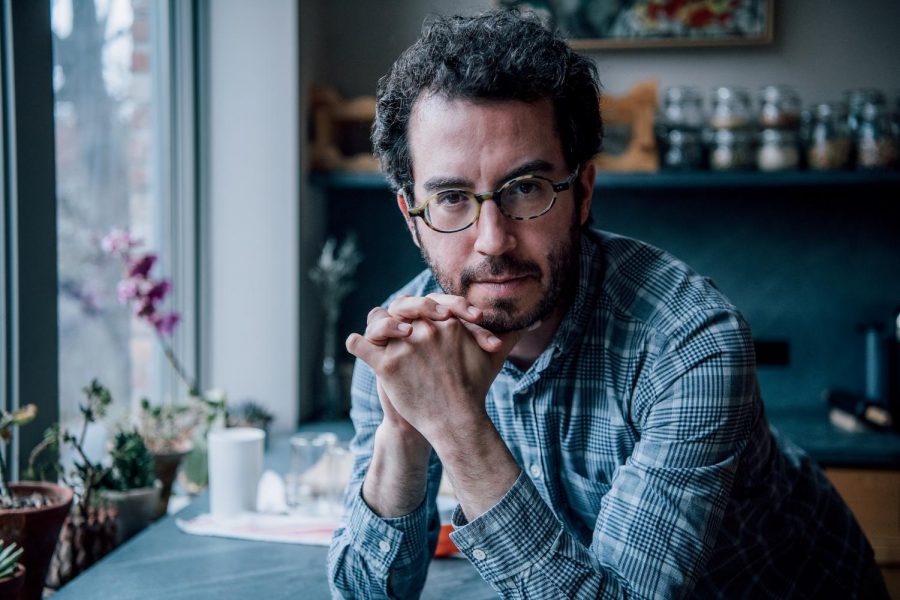
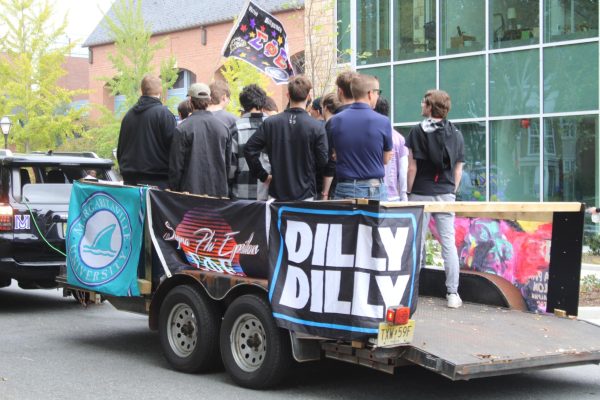

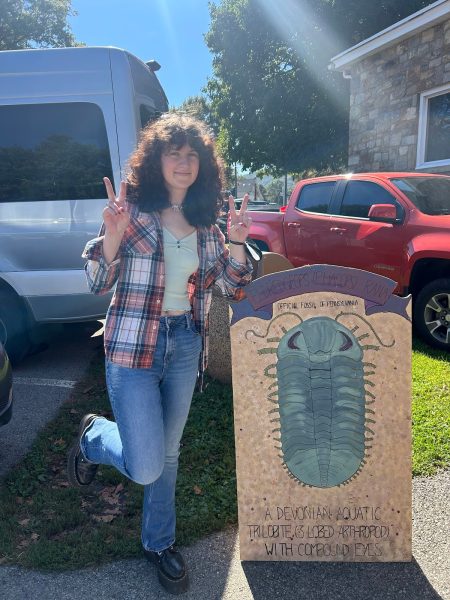
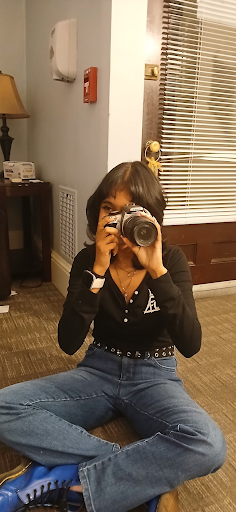
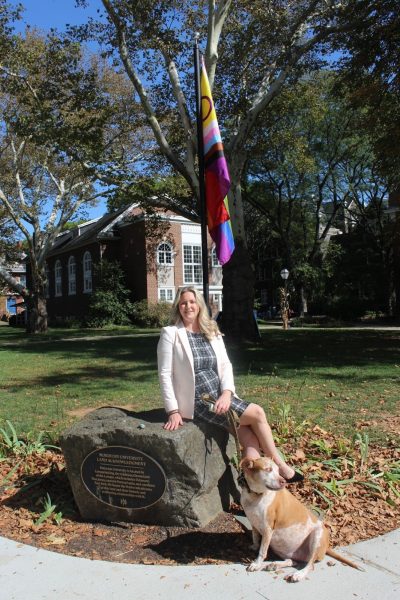
Kelly Denton-Borhaug • Sep 11, 2020 at 11:09 am
Terrific interview — thank you, Comenian!